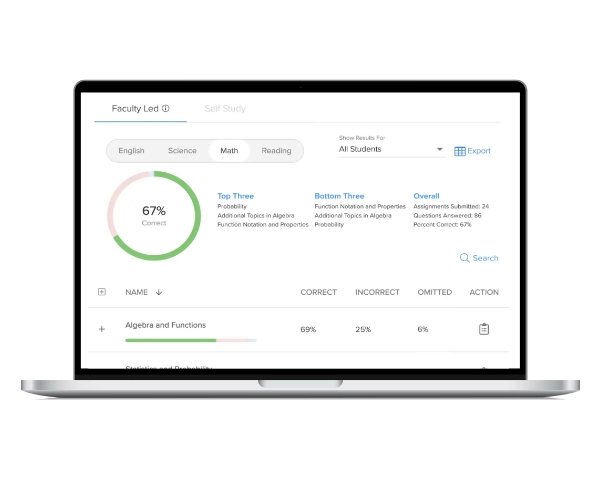Stereotypes are tough to dispel, and the stereotypes around AP® courses are no exception. In the past, the assumption that AP classes were for schools in higher-income districts and for only the most advantaged students kept many capable students from the benefits aligned with the experience.
We’ve come a long way over the past few decades, and now more students have access to these courses than ever before. But even today, some schools may not offer many, or any, AP courses. For varying reasons, investment isn’t made in offering the courses or hiring the necessary qualified teachers. And this continues to keep deserving and able students from opportunities that can enrich their lives.
It is well known that AP courses can help students:
- Develop skills needed for college and career success
- Prepare for and get accepted into college
- Boost their GPA
- Save time and money in college
- Receive merit-based financial aid
With benefits like these, it becomes clear that the courses are not just a nice-to-have, but a must have in course offerings.
“AP courses are a necessity because they require students to think deeply about the subject, rather than remain on the surface,” says Clint Rodreick, who teaches AP History at Phoenix High School in southern Oregon. “AP learning demands critical inquiry, rather than encouraging it, and it requires that students question narratives and ‘truth’ itself in order to square these things with their own lived experience.”
The courses also require students to dig deeper into subjects that interest them and tap into their creativity and problem-solving skills to address course challenges. This deeper learning is key to college success.
“Some students who are placed in remedial or regular classes tend not to do better because they are not expected or demanded to do better,” shared Rodreick. “They are less engaged because there is less rigor. Simply put, they are bored. And they are bored because they aren’t asked to think. They are simply asked to regurgitate and engage in rote memorization. Application and synthesis are often missing, which means that ideas remain stagnant and irrelevant, rather than vibrant and significant.”
How can America’s high schools help more students aim for success via AP courses?
Simply put, every high school — no matter size, stature, or location — needs to make the investment in the future of students. That means allocating funds for advanced academics like AP.
Offering a plethora of new AP courses alone is not the answer, however. Students enrolled in those courses also need tools available to them that provide individualized support and learning opportunities and reinforce classroom instruction. Additionally, teachers need to be able to easily differentiate instruction and have insight into student mastery so they can adjust instruction accordingly. As more schools offer AP courses–and more students of varying ability enroll–having quality, College-Board® aligned resources that both teachers and students can utilize will help AP students succeed. AP instructors and students need resources that support the specific requirements of the AP curriculum while providing data that allows instructors to check student progress along the way, thus ensuring that deep understanding and application of concepts.
Most universities recognize AP accomplishments when making admission decisions, determining placement, and awarding university credit. This hammers home the fact that AP courses are important to more than just the highest achieving students at larger schools. While the rigor of AP courses may not be for every student, perhaps they could be for more students. Opportunities abound, especially when stereotypes begin to become a thing of the past.
For districts, schools, and educators looking to enhance AP classes and boost student scores, UWorld offers an innovative AP resource that helps students master the concepts and gain the confidence needed for AP success. With perfectly modeled College Board®-level questions, concise answer explanations, and easy-to-access progress monitoring, our online learning tools will help you take your AP education to the next level. Discover how we can help your program today.




